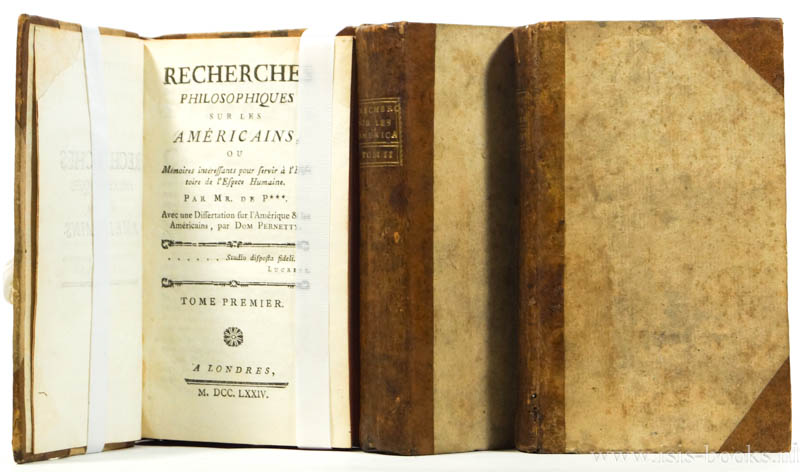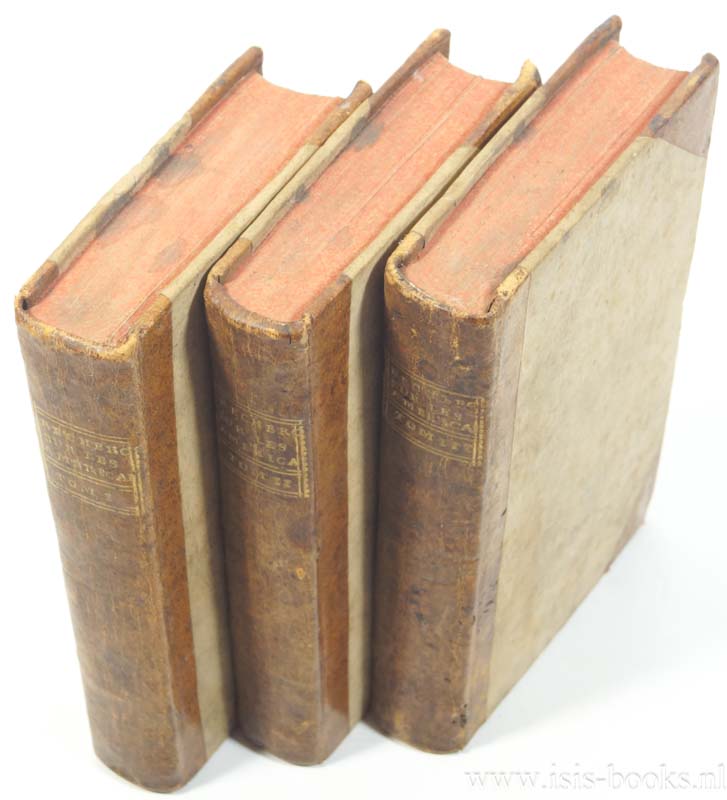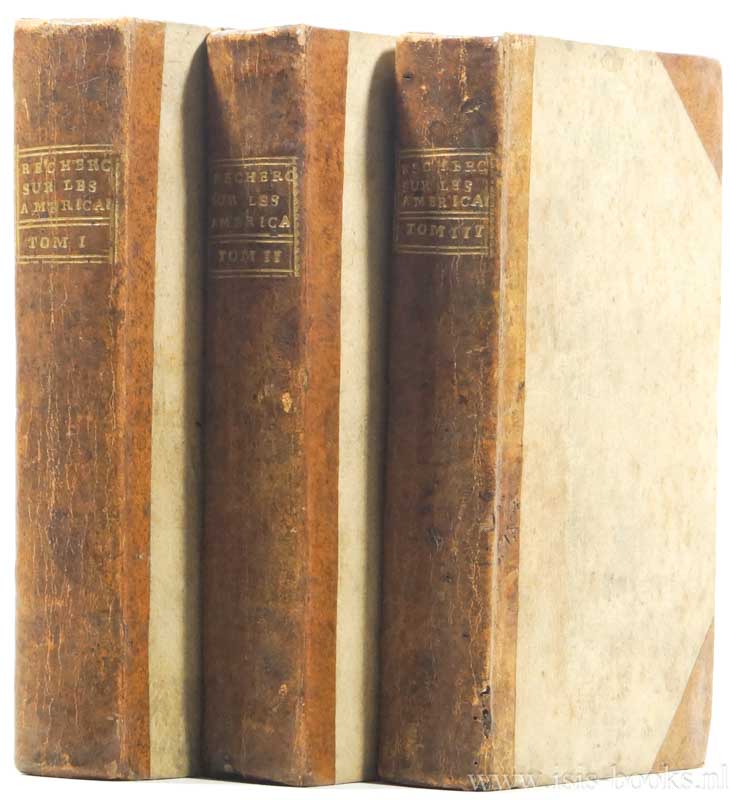OK
OK Cancel


PAUW, CORNELIUS DE
Recherches philosophiques sur les Américains ou Mémoires interessants pour servir à l'histoire de l'espece humaine. Avec une differtation sur l'Amérique & les Américains, par Dom Pernetty. Complete in 3 volumes.
Londres, np, 1774.
(XIV) (II) 406 pp. (IV) 364 (II) pp, (II) (X) 379 pp. Halfleather bindings. *French titlepage of volume 1 a little bit damaged, boards of the 3 volumes slightly spotted, spine volume 3 a bit damaged, some small foxing in the 3 volumes, otherwise in a good condition*
Cornelius Franciscus de Pauw or Cornelis de Pauw ; French: Corneille de Pauw; 18 August 1739 - 5 July 1799) was a Dutch philosopher, geographer and diplomat at the court of Frederick the Great of Prussia.
Although born in Amsterdam, son of Antonius Pauw and Quirina van Heijningen, he spent most of his life in Kleve. Working for the clergy, he nonetheless became familiar with the ideas of the Enlightenment. During his lifetime he was considered to be the greatest expert on the Americas, although he never visited the continent; he also wrote at length on the origins of ancient peoples, rejecting the popular idea of the time that China was originally a colony of Ancient Egypt.
He was a specialist in ethnologic studies as well, publishing a study of American Indians in French in 1768. Daniel Webb, an English scholar and translator, translated portions of de Pauw's work into English for a public that was hungry for information regarding the new continent of America. De Pauw had no hesitation in rejecting the observations of those with personal experience of the Americas if they differed from his preconceptions, as can be seen from his comments on the Aztec calendar. Despite this, he was reputed in his lifetime to be Europe's foremost authority on the Americas. He read the accounts of Buffon and other scientists, naturalists, and explorers, and drew his own conclusions. De Pauw was of the opinion (shared with other European scientists of that time) that the American natives were inferior to natives of northern and western Europe, and that this inferiority was partly due to American climate and geography.
As a renowned scholar, he corresponded with the major philosophes of his time - including Voltaire -, and was asked to contribute articles to the Encyclopédie. He was the uncle of Anacharsis Cloots, to whom he was also a teacher. De Pauw died in Xanten. Napoleon I of France had an obelisk raised in his memory in Xanten.
Source: Wikipedia
Boeknummer 640681 € 450.00







